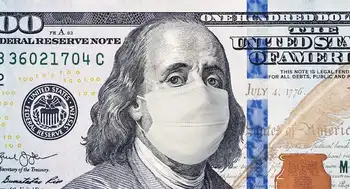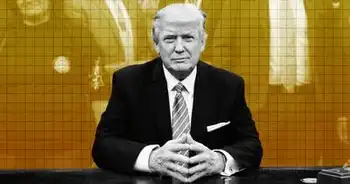Ex-Enron employee says illicit deals were common
HOUSTON, TEXAS - A former Enron Corp. employee who worked under then-chief financial officer Andrew Fastow said illicit finance deals were so common at the company that he never worried about getting caught.
Investment analyst Chris Loehr, testifying in the trial of former Enron chief executives Ken Lay and Jeffrey Skilling, said the company's accountants turned a blind eye toward most of the misdeeds instead of warning that they skirted the law.
"I knew we were doing things that were wrong; I did not consider myself a criminal though," said Loehr, who worked for Enron from 1999 to 2001, leaving just a few months before the company declared bankruptcy.
"Were you concerned about getting caught?" asked Skilling attorney Daniel Petrocelli during cross-examination.
"Not particularly. The conduct was fairly open and notorious. It was no great secret what we were doing," said Loehr, who has not been charged with a crime, but testified for the prosecution.
Enron, once the nation's seventh-largest company, collapsed into bankruptcy in December 2001 after disclosures that it had reported false profits by hiding mounting losses and billions of dollars in debt in off-the-books partnerships managed by Fastow.
Fastow, in four days of testimony that concluded recently, said Skilling and Lay knew the Houston-based energy trading company was deeply troubled, but lied to investors that it was financially strong.
Lay and Skilling face multiple criminal charges for their part in the company's collapse but have pleaded not guilty to all.
Loehr, under questioning from prosecutor John Hueston, described many of the side deals - which had names such as LJM, Raptor and Chewco - and how the documents backing them were falsified to misstate the financial gains to Enron.
Backdating documents to get such things as tax benefits was so common that employees jokingly called it "time travel," he said.
Enron accountants, who included defunct accounting firm Arthur Andersen, "kind of covered their eyes" to most of the transactions, Loehr said.
"They took a see-no-evil, hear-no-evil approach," he said.
Loehr also said Fastow told him the side deals all came with an assurance from Enron executives that the partnerships would not lose money.
He said he was not told if Skilling gave those assurances, as Fastow testified.
Loehr, now 31, left Enron in August 2001, the same month that Skilling suddenly resigned as chief executive officer after just six months on the job.
He said he quit to go to business school, but also because he was worried about his work at Enron.
"I was growing increasingly uncomfortable with the transactions we were doing. It seemed to me Enron was getting more and more desperate," Loehr said.
Related News

Ukraine's parliament backs amendments to electricity market law
KIEV - The Verkhovna Rada, Ukraine's parliament, has adopted at first reading a draft law that proposes giving the National Commission for State Regulation of Energy and Public Utilities the right to set marginal prices in the electricity market until 2023.
A total of 259 MPs voted for the document at a parliament meeting on Tuesday, November 12, according to an Ukrinform correspondent.
Bill No. 2233 introducing amendments to the law on the electricity market provides for the legislative regulation of the mechanism for fulfilling special obligations for the purchase of electricity at a "green" tariff, preventing the uncontrolled growth of electricity…




